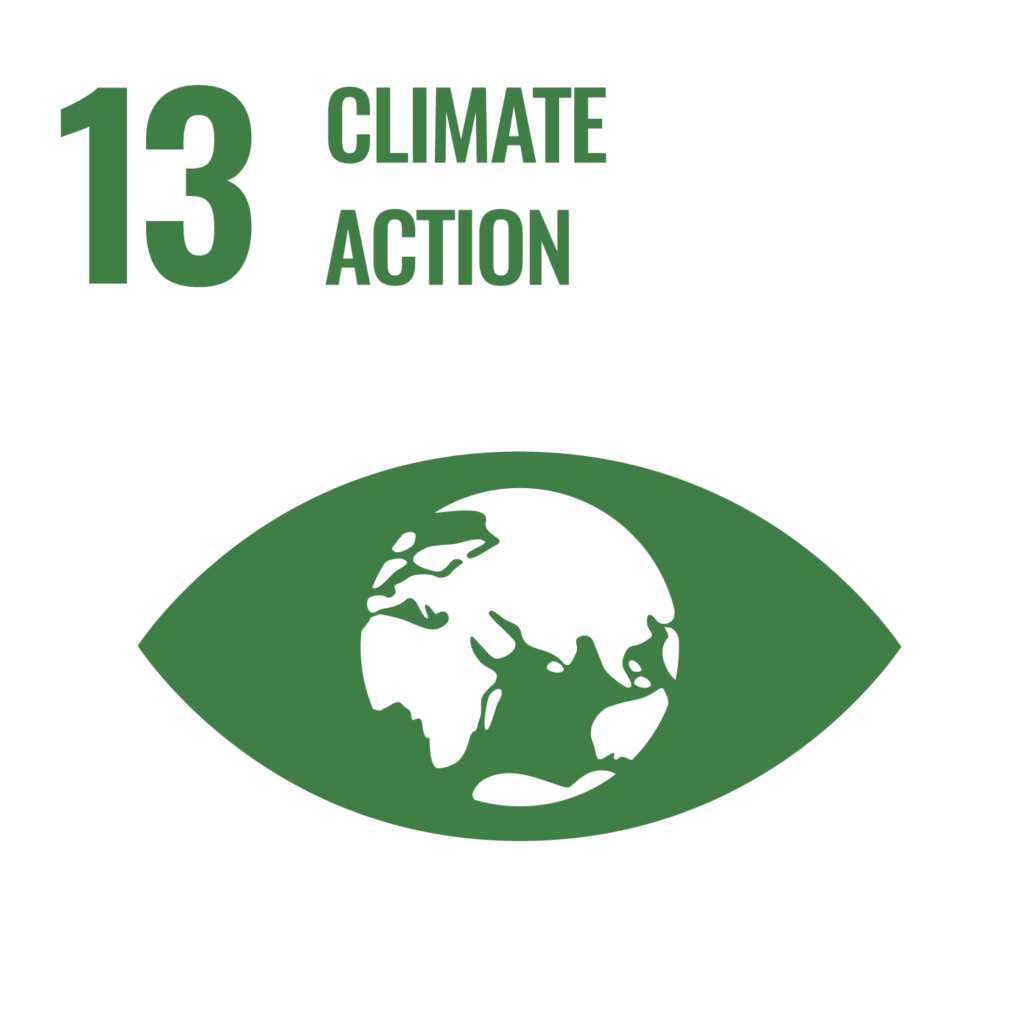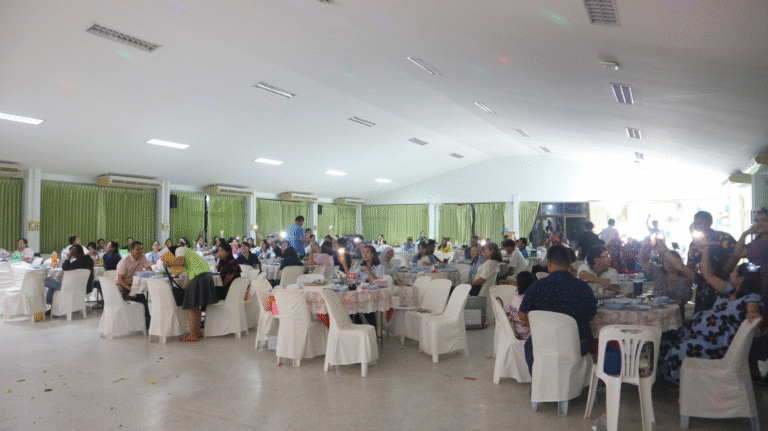Reporters:
Asst. Prof. Dr. Nattapon Kaewthong
Asst. Prof. Chayanat Buathongkua
Asst. Prof. Tanakorn Inthasuth
Ms. Sayamon Buddhamongkol
Ms. Duanrung Chooyruang
Evidence Date:
March 24, 2023, Aug 26, 2023
Related Indicators:
13.3.1
Details:
Rajamangala University of Technology Srivijaya (RUTS) emphasizes teaching and learning that prioritizes climate studies, sustainability, and innovation for adapting to ever-changing environmental conditions. Courses related to these topics are designed to build knowledge and skills in using technology and innovation in real-world scenarios. They also offer students and communities the opportunity to participate in projects aligned with sustainable development goals. Key initiatives in Teaching and Learning include:
1. Development of a Floating Agriculture Platform
A team of students from the Trang campus of RUTS developed the “Floating Agriculture Platform,” a floating structure designed to support small-scale agriculture in flood-prone areas. This platform includes a management system that can be monitored and controlled via a smartphone application, enabling rural farmers to manage their agricultural activities conveniently and reduce labor in resource-constrained conditions.
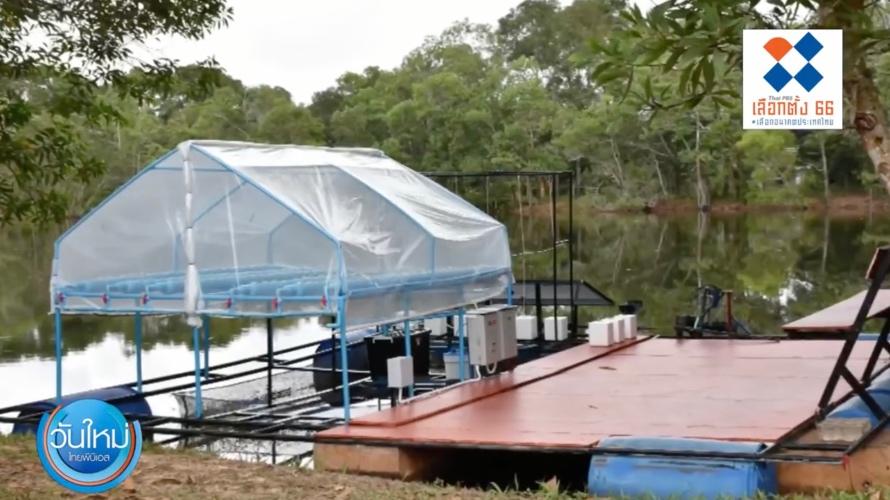
This agriculture platform not only reduces the impact of climate change, such as flooding, but also supports efficient water use through a hydroponic, soil-less growing system. It further promotes sustainable energy use, such as solar power, making this platform a prime example of applying technology suited to local conditions. It strengthens food security in communities affected by flooding, demonstrating an effective integration of technology for resilience and sustainability in agriculture.

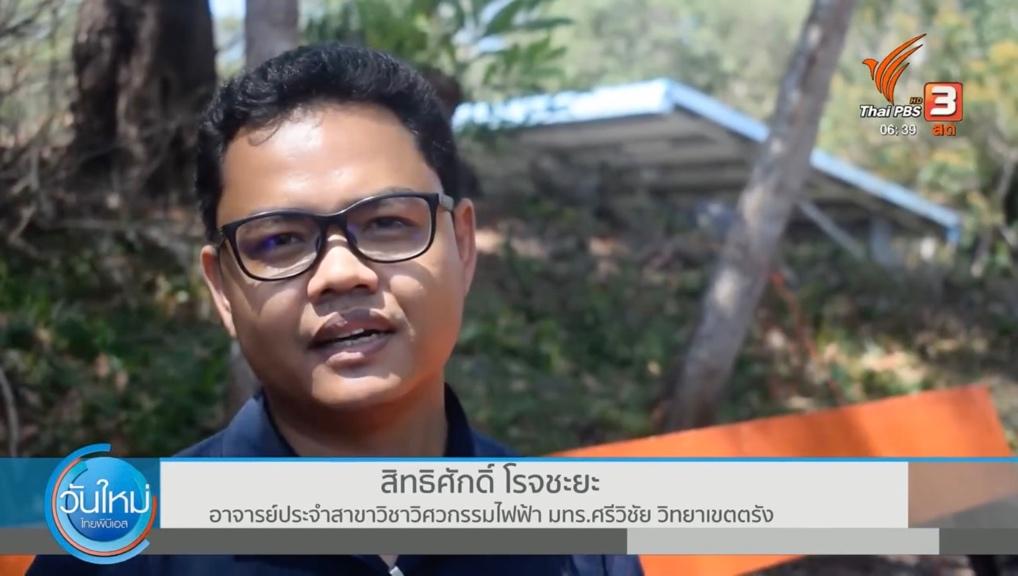
The floating agriculture platform also supports learning in soil-less cultivation, with hydroponically grown crops like tomatoes serving as examples. This method uses less water and energy compared to traditional soil-based farming, promoting resource efficiency while reducing carbon emissions and supporting sustainable agriculture. The project aims to inspire students and the community to recognize the importance of environmentally friendly agriculture, fostering a commitment to sustainable practices.
Additionally, the platform is equipped with a management system that allows water and electricity usage to be controlled via a mobile application, enabling farmers to manage water and energy sustainably. This platform thus serves as an excellent model for using technology to adapt to fluctuating environmental conditions.
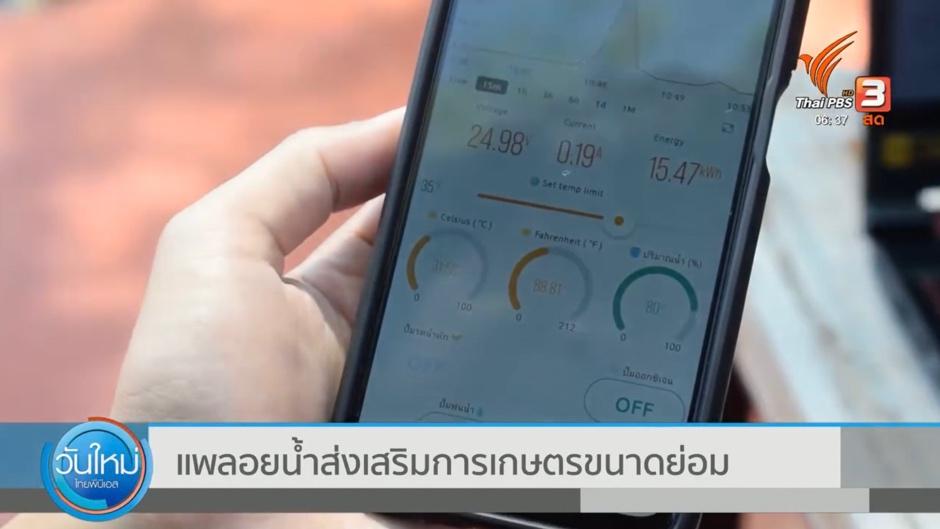
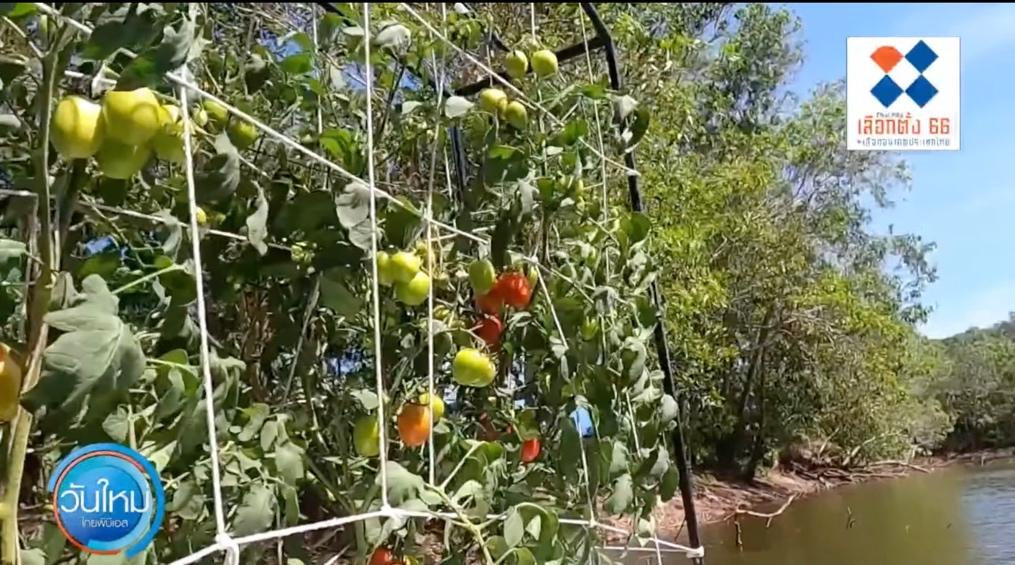
2. IoT and Computer Networking Training Program
To prepare students for a technology-driven world, RUTS organized an IoT (Internet of Things) and computer networking training program for 40 third-year high school students at Sawat Ratnaphimuk School in Trang Province. This program focuses on equipping students with fundamental skills in using IoT technology to monitor and control devices remotely, as well as introducing them to networking systems. These skills are intended to prepare them for applications in agriculture and other industries related to sustainable resource management.
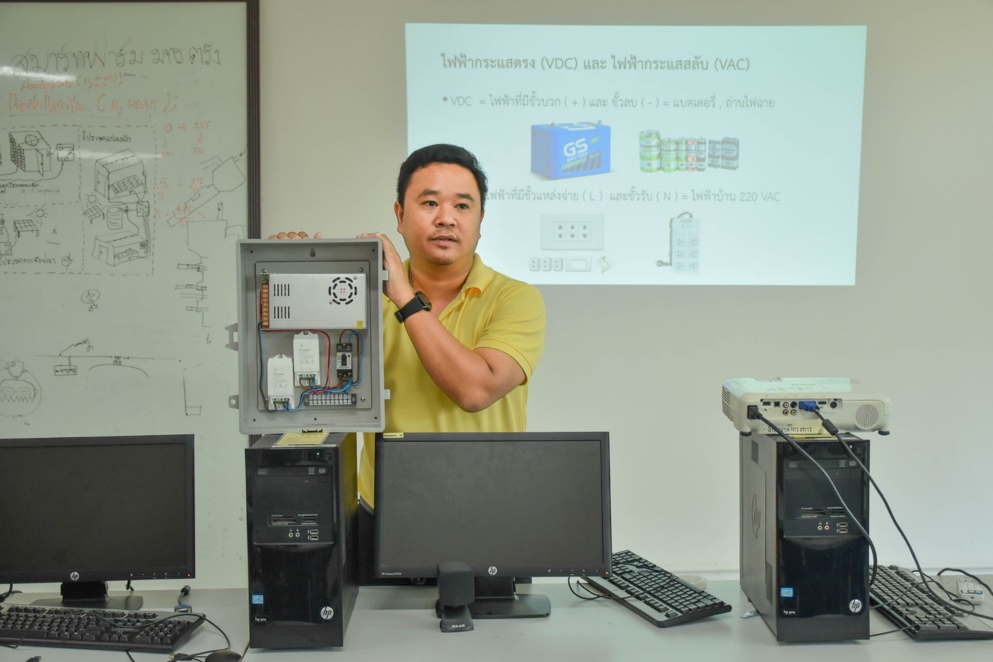
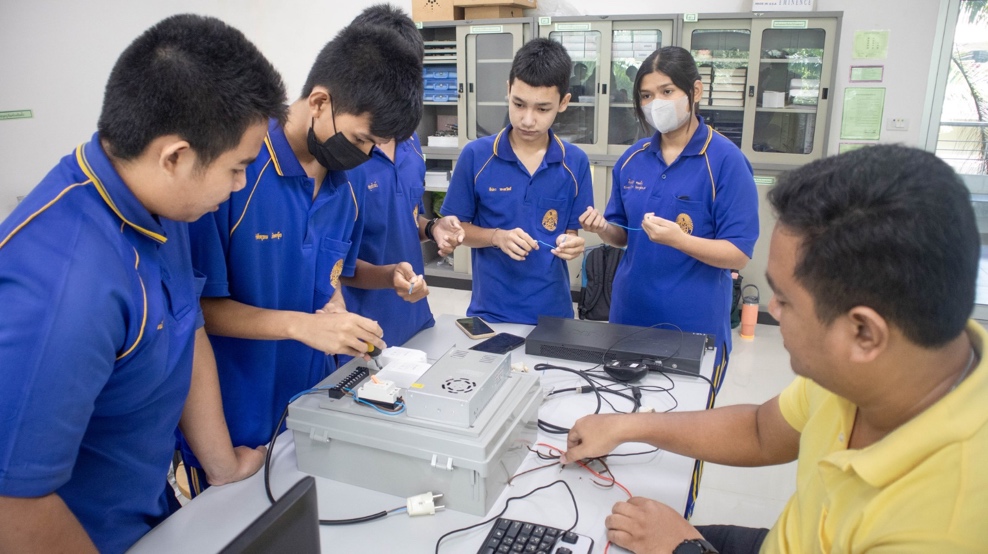
This program also integrates learning related to agricultural innovation and water resource management, aligning with SDG 13.3.1, which aims to build educational capacity and raise awareness of technology’s importance for environmentally friendly natural resource management. The activities enhance foundational knowledge of community resource management for students early in their education.
Students in engineering and technology fields are given opportunities to develop innovations and apply technology to meet community needs. These innovative projects not only allow students to acquire new skills but also enable them to collaborate with communities, making a tangible social impact. The program fosters creativity and technology skills, equipping students with the adaptability and problem-solving abilities necessary for future challenges.
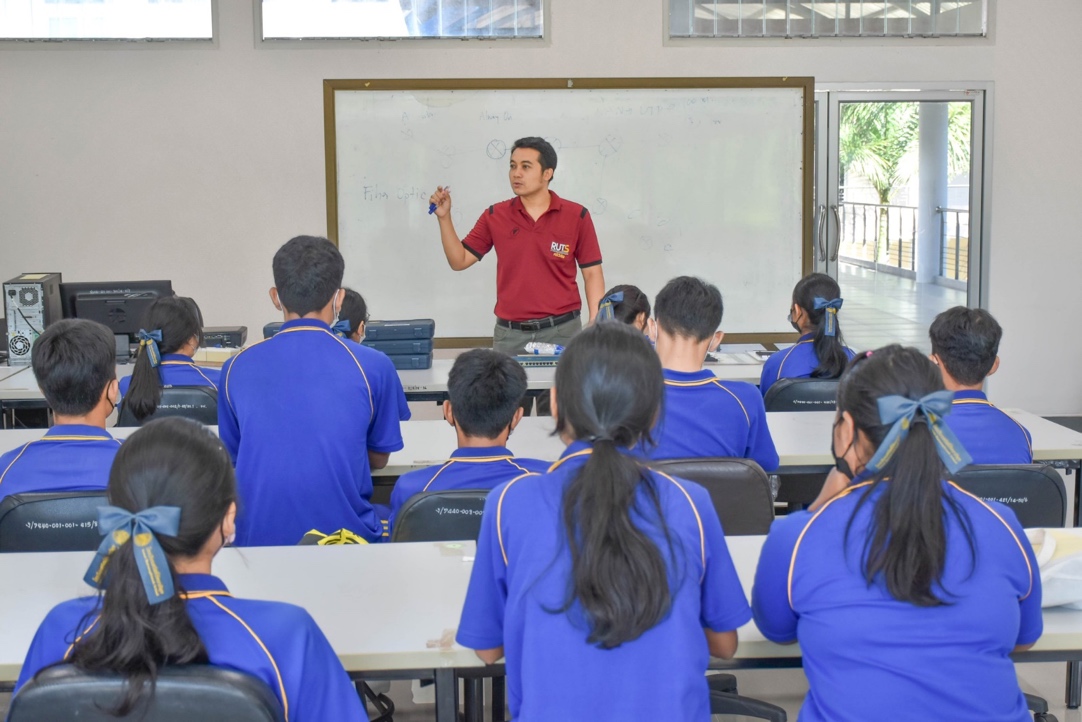
The Teaching and Learning initiatives at Rajamangala University of Technology Srivijaya demonstrate an integration of education, research, and innovation development to address climate change. Education is used as a tool for creating societal change, with projects like the Floating Agriculture Platform and IoT training not only enhancing student capabilities but also empowering local communities to adapt to changing climate conditions. These projects emphasize sustainable technology and resource management to make a positive impact on communities and the environment. They encourage students and communities to recognize their roles in fostering positive change, promoting awareness of sustainability and social responsibility.
Related links:

